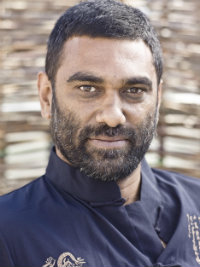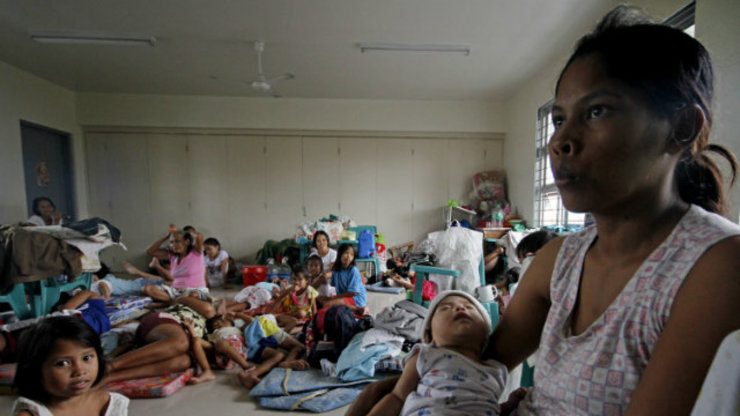SUMMARY
This is AI generated summarization, which may have errors. For context, always refer to the full article.
 When Typhoon Ruby (Hagupit) hit the Philippines, one of the biggest peace time evacuations in history was launched to prevent a repeat of the massive loss of life which devastated communities when Super Typhoon Yolanda (Haiyan) hit the same area just over a year ago.
When Typhoon Ruby (Hagupit) hit the Philippines, one of the biggest peace time evacuations in history was launched to prevent a repeat of the massive loss of life which devastated communities when Super Typhoon Yolanda (Haiyan) hit the same area just over a year ago.
“One of the biggest evacuations in peacetime” strikes a sickening chord. Is this peacetime or are we at war with nature?
I was about to head to Lima, when I got a call to come to the Philippines to support our office and its work around Typhoon Hagupit (“lash” in Fiipino). In Lima, another round of the UN climate talks sought to negotiate a global treaty to prevent catastrophic climate change. A truce of sorts with nature.
But these negotiations have been going on far too long, with insufficient urgency and too much behind the scenes, and not so much behind the scenes, interference from the fossil fuel lobby.
This year, like last year and the year before, these negotiations take place against a devastating backdrop of a so-called “extreme weather event,” something that climate scientists have been warning us about if we don’t take urgent action.
Tragically, we are not taking urgent action. (READ: PH is country most affected by climate change in 2013)
Nature does not negotiate, it responds to our intransigence. For the people of the Philippines, and in many other parts of the world, climate change is already a catastrophe.
Only one year ago, Super Typhoon Haiyan killed thousands, destroyed communities, and caused billions of dollars in damage. Many survivors who are still displaced have to evacuate the tents they have been living in as Typhoon Hagupit carves a path across the country as I write.
‘Stand in solidarity’

We traveled to the impacted areas in the wake of Typhoon Hagupit. We offered what minor assistance we can.
We stand in solidarity with the Filipino people and we will call out those who are responsible for climate change, those who are responsible for the devastation, and who should be helping pay for the clean up and for adaptation in a world in which our weather is an increasing source of mass destruction.
We challenged those in Lima to turn their attention from the lethargy and process of the negotiations and pay attention to what is happening in the real world.
We called on them to understand that climate change is not a future threat to be negotiated but a clear and present danger that requires urgent action now.
Each year, the people of the Philippines learn the hard way what inaction on emissions mean.
They might be slightly better prepared and more resilient, but they are also rightly more aghast that each year – at the same time – the climate meetings seem to continue in a vacuum, not prepared to take meaningful action, not able to respond to the urgency of our time and not holding accountable the big polluters that are causing the climate to change with ferocious pace.
Before leaving for Manila I also received a message from Yeb Saño, climate commissioner for the Philippines: “I hope you can join us as we bear witness to the impact of this new super typhoon. Your help would be very valuable in delivering a message to Lima loud and clear.”
Yeb was the Philippine chief negotiator for 3 years at the UN climate talks and recently visited the Arctic on a Greenpeace ship to witness the Arctic sea ice minimum. Two years ago in Doha, as Typhoon Pablo (Bopha) took the lives of many, he broke through the normally reserved language of dispassionate diplomacy that dominates UN climate treaty talks:
“Please let 2012 be remembered as the year the world found the courage to… take responsibility for the future we want. I ask of all of us here, if not us, then who? If not now, then when? If not here, then where?”
I joined Greenpeace Philippines and Yeb in visiting the worst hit areas, documented the devastation, and sent a clear message from climate change ground zero to the world that the ones that are responsible for the majority of emissions will be held accountable by the communities that are suffering the impacts of extreme weather events linked to climate change.
We will call on the heads of the fossil fuel companies who are culpable for the unfolding tragedy to examine their consciences and accept their historic responsibility.
They say the truth is the first casualty of war. In this war against nature, the truth of climate science is unquestionable.
Please add your voice by signing our petition calling on Big Polluters to be held legally and morally accountable for climate damages. After signing the petition you will be redirected to a site where you can make a donation to the relief efforts of partner organizations.
Please join us. – Rappler.com
Kumi Naidoo has been Greenpeace’s International Executive Director since November 2009. He is dedicated to engagement, dialogue, and change and seeks a green and peaceful planet for all the world’s inhabitants.
Add a comment
How does this make you feel?
There are no comments yet. Add your comment to start the conversation.